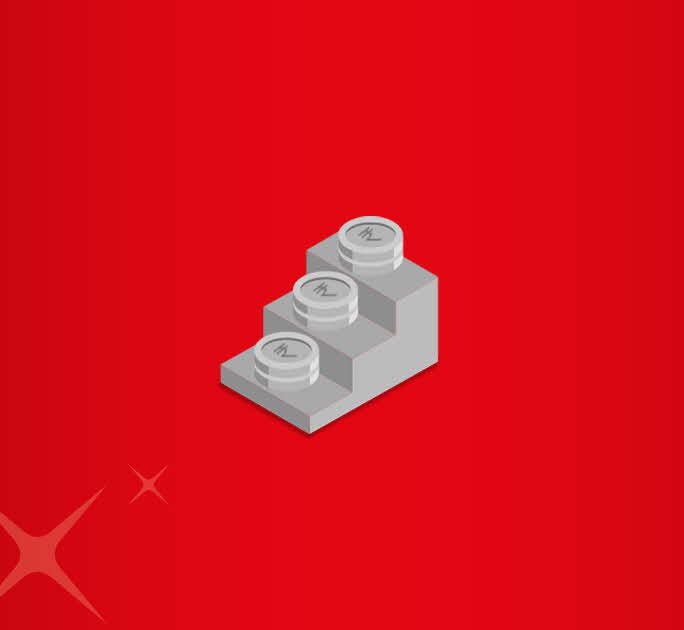- Save
- Invest
- Borrow
- Pay
- More
- Customer Services

Debt Fund Types
Choose from 16 SEBI-categorised debt mutual fund investments based on your risk appetite and investment goals.
Key Takeaways
- Debt mutual funds are those that invest in fixed income or interest generating securities.
- Examples of debt fund investments include government securities, corporate bonds, Treasury Bills, etc.
- These investments are ideal for risk-averse investors.
- SEBI has categorised debt funds into 16 different types.
- Overnight funds, long-duration funds, gilt funds, etc., are some examples of debt funds.
The beauty of investing in Mutual Funds is that there is something in it for every investor. For instance, investors looking to earn higher returns can invest in Equity Mutual Funds, whereas those interested in earning fixed returns or income can invest in Debt Mutual Funds. The latter is especially popular among conservative investors. Let us find out what Debt Mutual Funds are and the different types of Debt Funds.
What are Debt Mutual Funds?
Debt Mutual Funds are Mutual Funds that invest in fixed income or interest generating securities such as government securities, corporate bonds, Treasury Bills, Certificates of Deposits, and other similar money market instruments. When you invest in a Debt Fund, you are essentially giving a loan to a corporate or government entity, which in turn gives you a fixed income or interest on your loan. Professional fund managers manage these funds by investing in securities based on your investment goals and risk appetite. Also, you can choose 16 types of Debt Funds as categorised by the Securities and Exchange Board of India, each with a unique investment duration and theme.
Debt Fund Types
SEBI has categorised 16 Debt Fund types as below:
Overnight Fund
As is apparent from the name, an overnight fund is a type of Debt Fund with the shortest investment horizon, i.e. 1 day.
Liquid Fund
Liquid Funds invest in different debt and money market securities and come with a maximum maturity period of 91 days.
Ultra-Short Duration Fund
This scheme invests in money-market and debt securities with a Macaulay duration ranging from 3-6 months. The Macaulay Duration is a metric that assesses the time taken by the scheme to recoup or recover the investment.
Low Duration Fund
A low duration fund invests in securities with a Macaulay duration ranging from 6 to 12 months.
Money Market Fund
A Money Market Fund is one that invests in money market instruments with maturity periods lasting up to one year.
Short Duration Fund
Investors who are comfortable locking their funds for durations lasting 1-3 years can consider investing in Short Duration Funds.
Medium Duration Fund
Investors who do not mind staying invested for a Macaulay duration of 3-4 years can opt for Medium Duration Debt funds.
Download digibank to create your savings account and choose from a range of debt mutual fund options to build wealth.
Medium to Long-Duration Fund
Investors with considerably longer investment goals can invest in the Medium to Long Duration Debt Fund Types, which come with investment tenures ranging from 4-7 years.
Long Duration Fund
Long Duration Funds are excellent for investors with specific long-term goals – children’s higher education, marriage, retirement etc. These funds invest in money-market and debt instruments with Macaulay duration exceeding 7 years.
Dynamic Bond Fund
As the word ‘Dynamic’ suggests, this Debt Fund type invests in securities with varying investment duration instead of fixed durations mentioned above.
Corporate Bond Fund
This Debt scheme invests is one that invests approximately 80% of its total assets in some of the most highly rated corporate bonds in India.
Credit Risk Fund
A credit risk fund is similar to a Corporate Bond Fund in that it also invests its assets in Corporate Bonds. However, it differs only in terms of asset allocation. While the Corporate Bond Fund invests 80% of its total assets, the Credit Risk Fund invests 65% of its total assets in the highly-rated Corporate Bonds.
Banking and PSU Fund
The name of this Debt Fund type is self-explanatory. A banking and PSU fund invests in debt instruments of entities such as Banks, Public Sector Undertakings and Public Financial Institutions.
Gilt Fund
A Gilt Fund is the type of Debt Fund which invest 80% of its total assets in different government securities with varying maturity periods.
Gilt Fund with 10-year Constant Duration
This Debt Fund scheme is one with the longest investment horizon. It invests approximately 80% of its assets in government securities with a constant investment duration of 10 years.
Floater Fund
A floater Debt Fund scheme invests a minimum of 65% of assets in instruments in floating rate instruments.
How to choose the right Debt Fund to Invest In?
A Debt Mutual Fund is an ideal investment for you if you are a conservative investor or have limited income sources and are looking for additional fixed income. You can also consider these investments if you are drawing closer to your retirement, or if you have some specific long-term goals you wish to achieve.
Final note
With 16 types of Debt Mutual Funds to choose from, it can be overwhelming to select the best type. You must, however, invest after considering your preferred investment duration, risk appetite, the past performance of the fund manager handling the fund, and the investment goals you intend to fulfil. A good rule of thumb is to invest in a mixed bag of various debt fund types. Investing in various funds enables you to diversify your investments, mitigate your risks, and earn stable returns.
Download digibank and start the simple process of investing in debt funds.
*Disclaimer: This article is for information only. We recommend you get in touch with your income tax advisor or CA for expert advice.











